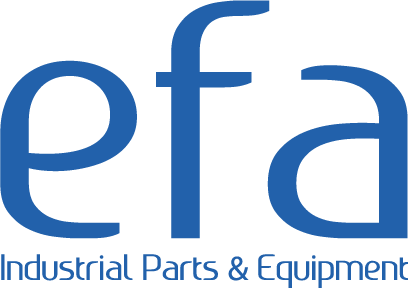Batteries
Integrated batteries
As part of the electrification of vehicles, machinery and AGVs (Automated Guided Vehicles), the choice of battery technology is essential to meet the specific needs of each application. Whether for materials handling equipment, industrial vehicles or automated systems, the performance, longevity and safety of the batteries are decisive criteria.
At efa France, we work with a number of leading battery suppliers to provide you with the best solution for your requirements. Depending on the technical specifications of your project and the operating conditions of the machine, we can offer you batteries from the various chemistries available: Lithium Iron Phosphate (LFP) and Nickel Manganese Oxide (NMO) being the most popular.
LFP (Lithium Iron Phosphate) batteries
LFP batteries are a preferred option in many electrification projects because of their safety, long life and thermal stability. This type of battery uses iron phosphate as the cathode material and lithium as the anode. Here are the key features of the LFP battery:
Longer life: LFP batteries have an exceptionally long life, often exceeding 4,000 charge and discharge cycles.
Safety: They are less likely to heat up and catch fire than other types of lithium battery.
Energy efficiency: Although they have a lower energy density than some other chemistries, they offer very satisfactory performance for many vehicles and machines.
Affordability: LFP batteries are generally more competitively priced than other types of lithium battery.
LFP batteries are particularly well suited to applications requiring high reliability and fast charging, as well as long life. They are commonly used in materials handling equipment, commercial vehicles and some AGVs.
NMO (Nickel Manganese Oxide) batteries
NMO (Nickel Manganese Oxide) batteries are another lithium-ion technology that uses a mixture of nickel, manganese and cobalt in the cathode. They are particularly popular for their higher energy density and rapid charging capabilities. Here are their characteristics:
High energy density: NMO batteries offer greater capacity for a given volume or weight, which means greater range, a crucial aspect for larger vehicles or applications requiring high power.
Thermal stability and safety: NMO batteries also offer a good level of safety, although slightly less than LFPs. They resist high temperatures well, but require more sophisticated thermal management systems.
Increased autonomy: Due to their high energy density, they are ideal for applications where autonomy is a key factor, such as heavy vehicles or AGVs with long missions.
Cost: NMO batteries are generally more expensive than LFPs due to the use of nickel and manganese, but they can be more cost-effective in the long term for certain applications due to their performance.
NMO batteries are commonly used in applications where power and range are a priority, such as in heavy electric vehicles, high-capacity AGVs or in machinery that needs to be driven for long periods of time.
Lithium vs Lead
- A lithium battery charges much faster than a lead-acid battery. In fact, a full charge takes just 2 hours!
- Energy efficiency is higher in a lithium battery (96%) than in a lead-acid battery (75%).
- NO maintenance costs on a lithium battery
- Lithium batteries have a long life (4,000 charge cycles), while lead batteries have a short life (1,000 charge cycles).
- Lithium batteries operate over a wide temperature range, unlike lead-acid batteries, which cannot withstand extreme temperatures.
- Partial charging and discharging do not affect the life of a lithium battery.
Choosing the right battery for your project
At efa, we understand that every electrification project is unique. The choice of battery chemistry will depend on a number of factors, including:
Type of application: Light vehicles, materials handling equipment and AGVs have different energy requirements. LFPs are often preferred for applications where safety and durability are essential, while NMOs are recommended for applications where capacity and power are decisive criteria.
Autonomy required: If the machine or vehicle has to cover long distances or operate for long hours, NMO batteries, with their higher energy density, will often be the better choice.
Cost: As LFP batteries are more affordable, they are suitable for projects with a limited budget, while guaranteeing a long service life and increased safety.
Operating conditions: Working environments (temperature, charge cycles, type of terrain) play a key role in the choice of chemistry.
We work with several battery suppliers, each specialising in cutting-edge technologies, to offer you the solution best suited to your needs. We can advise you on the choice of chemistry, capacity and configuration to ensure optimum performance and maximum durability for your fleet of machinery and vehicles.
